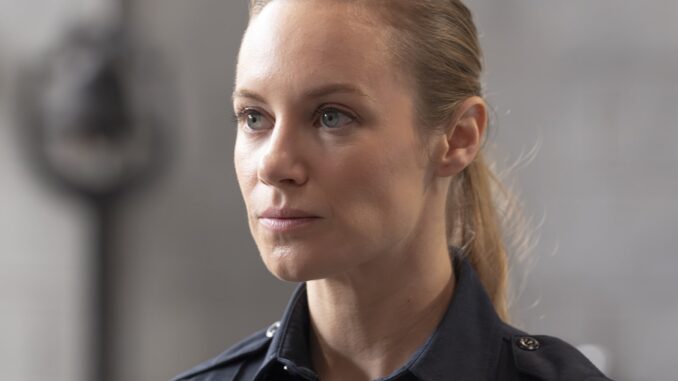
Home is Where You Fight: Danielle Savre on Maya's Family Reunion in Station 19
Station 19, known for its high-stakes rescues and deeply interwoven relationships, has consistently explored the complex dynamics within its makeshift family of firefighters. Among these, Maya Bishop, portrayed with fierce vulnerability by Danielle Savre, has arguably grappled with the most turbulent personal journey. The upcoming family reunion, as teased by Savre, promises to be a pivotal moment for Maya, not just as a plot point but as a culmination of years of suppressed trauma and a fragile hope for healing. It's not simply a pleasant gathering; it's a reckoning, a battlefield where the wounds of the past are reopened, and the possibility of a more stable future hangs precariously in the balance.
Savre’s insights into this reunion highlight the significance of confronting one’s origins. For Maya, family has been a source of both immense pressure and devastating disappointment. Her father, a manipulative and emotionally abusive figure, instilled a relentless need for perfection and control, shaping her into the driven, yet often self-destructive, Captain we see at Station 19. This dysfunctional foundation seeped into every aspect of her life, impacting her relationships, her leadership style, and ultimately, her mental health. The reunion, therefore, isn’t just about reconnecting with relatives; it’s about facing the source of her deep-seated insecurities and confronting the trauma that has fueled her ambition, her fears, and her sometimes volatile behavior.
The idea of "family" in Station 19 is multifaceted. While Maya's biological family represents a legacy of pain, the firehouse family provides a contrasting model of support, camaraderie, and unconditional love. This found family, particularly her relationship with Carina DeLuca, has been instrumental in Maya’s growth. Carina's unwavering belief in Maya’s potential, coupled with her genuine concern for her well-being, has allowed Maya to slowly chip away at the walls she built around herself. The reunion, however, threatens to expose the fragility of that progress. Will Maya's newfound stability withstand the reintroduction of the toxic patterns of her past?
As Savre hints, the reunion likely forces Maya to reconcile these two conflicting definitions of family. The firehouse family offers a safe space, a place where she can be vulnerable and imperfect. Her biological family, on the other hand, represents the ingrained messages of inadequacy and the constant pressure to perform. The reunion will likely force Maya to choose: will she succumb to the old patterns of seeking validation from her dysfunctional family, or will she draw strength from the love and support she has found with her chosen family? This internal struggle, expertly portrayed by Savre, promises to be a compelling and emotionally charged journey for viewers.
Furthermore, the reunion provides an opportunity for Maya to redefine her identity. For so long, she has allowed her father's expectations to dictate her actions and define her worth. The reunion allows her to challenge those expectations, to assert her own narrative, and to finally break free from the shackles of her past. This process may be painful, even confrontational, but it is essential for her to heal and move forward. As Savre emphasizes, this isn’t about seeking forgiveness from her father or expecting him to change; it’s about Maya finding the strength within herself to accept her past, acknowledge the damage it has caused, and actively choose a different path for her future.
In conclusion, the family reunion in Station 19, as teased by Danielle Savre, is not just another plot point; it’s a crucible, a transformative event that will challenge Maya Bishop in profound ways. It is a chance to confront the demons of her past, to reconcile her biological family with her chosen family, and to ultimately redefine her identity on her own terms. By forcing Maya to confront her deepest wounds, the reunion offers the potential for profound healing and growth, allowing her to finally embrace the love and support that surrounds her and build a future free from the shadows of her past. It’s a testament to the power of family, both the pain it can inflict and the healing it can provide, and a powerful reminder that home, ultimately, is where you choose to fight for yourself.